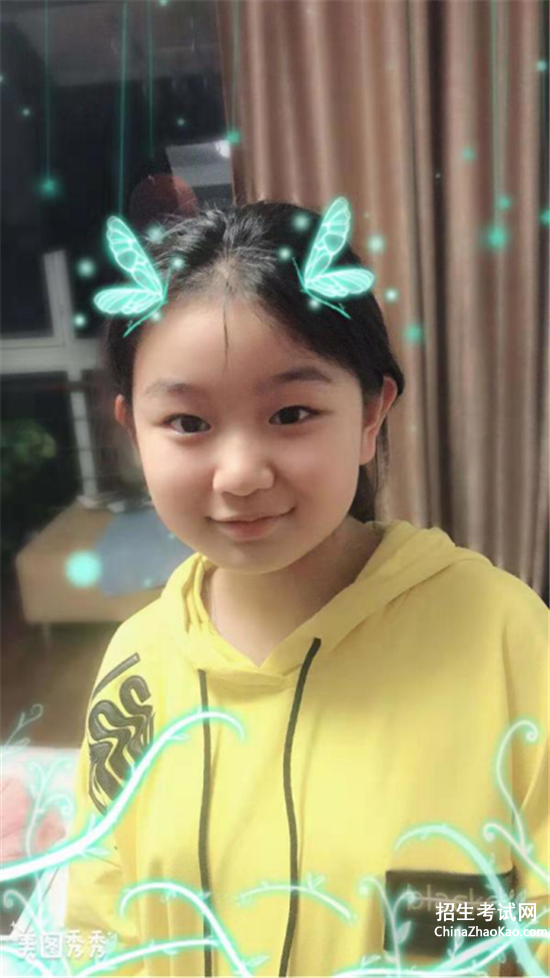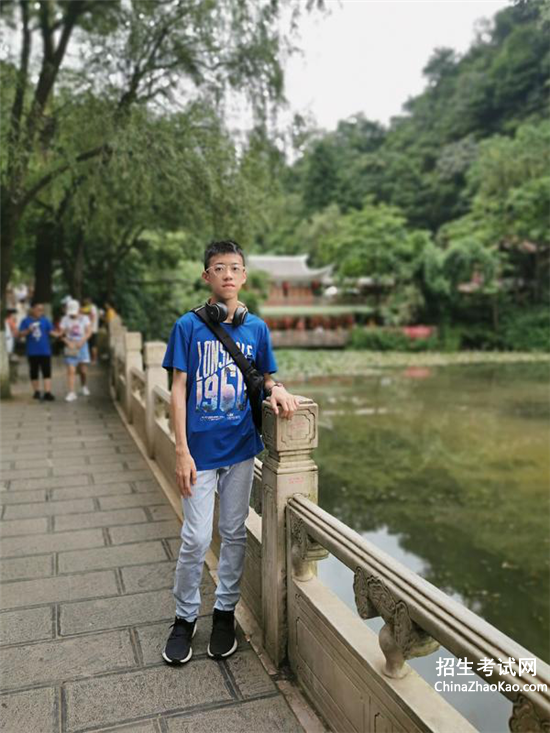【www.shanpow.com--外语考试】
第一篇are的过去式是什么:am ` is are的过去式是什么
am ` is are的过去式是什么
nonq11级分类:外语被浏览2149次2013.01.21
请微博专家回答检举
rsrs1998
采纳率:52%12级2013.01.21
is和am 的过去式 都是 was
are 的过去式是were
过去分词都是been
9721分享到:
请微博专家鉴定检举
为您推荐:am ` is are的过去式是什么am is are的过去式are的过去式be(amis)的过去式和过去分词am/is过去分词
相关问题
go is are am 的过去式是什么?82013.04.28
is am are 的过去式分别是什么12014.09.10
go is are am 的过去式是什么?12013.06.07
am is are的过去式92015.02.12
查看更多关于am is are的过去式的问题 >>
相关搜索
am is are过去分词
am is are的用法
am is are
am is are是什么词
am is are用法口诀
用am is are填空
am is are的意思
be am is are
等您帮助的附近的朋友
换一换
【北京】永泰天泽园有二期吗2分钟前
【北京】北京街上的车扫码下什么7分钟前
【北京】天津马拉松2017年怎么报名7分钟前
【北京】清理家里的下水道哪些公司比较专业22分钟前
【北京】长春市杰亚文化传媒有限公司怎么样?24分钟前
更多等您帮助的提问 >>
¥999
¥888
¥888
¥999
¥999
¥888
360问答总能找到你的答案
登录一下,也成为分享知识的一员
首次登录可获:金币+20,经验+20
答题中大奖啦
问:lunch,what,she,have,for,did能组成什...1 回答
问:小学四级微课心灵机场怎么做0 回答
问:The Black黑影怎么玩0 回答
问:F0: 850?20%Hz at 1Vrms/(in 1CC BOX...0 回答
换一批更多等您帮助的提问>>
第二篇are的过去式是什么:英语 过去式
是英语语法的一种,表示过去某个时间里发生的动作或状态。一般过去式的动词通常用动词的过去式形式来表示,而动词的过去式是在动词原形的基础上变化的。动词的过去式可分为规则动词和不规则动词。
过去式,过去时态 【过去式】
1、过去发生的而现在已经结束的动作要用一般过去式来表示。
2、表示过去某个时间里发生的动作或状态。
3、过去习惯性、经常性的动作、行为;过去主语所具备的能力和性格。
【过去时态】表示行为、动作和状态在各种时间条件下的动词形式。
【过去时态结构】指的是过去时态下的动词形式的语法构成。
过去式就是动词的变化,表示过去发生的事。一般看到ago,before, in 几几年,就是过去式。
work-worked
listen-listened 一般的就是直接加ed,特殊的就有一些变化。
我的
【过去时态结构基本形式】
1、主语+动词过去式+其他;
2、否定形式
①wasn"t/weren"t
②在行为动词前加didn"t,同时还原行为动词;一般疑问句Did+主语+do+其他。
概念:
表示过去的动作或事件。
例句:
A:What did you do last weekend?
B:I played football.
A:Did you read books?
B:Yes,I did.
构成
表示一般过去式的动词通常用动词的过去式形式来表示,而动词的过去式是在动词原形的基础上变化的。动词的过去式可分为规则动词和不规则动词。规则动词的过去式变化如下:
(1)一般情况下,动词词尾加 ed ,如:
work—worked; play—played;want— wanted; act—acted
(2)以不发音的 e 结尾动词,动词词尾加 d,如:
live—lived; move—moved; decide—decided; decline—declined; hope—hoped;
(3)以辅音字母 + y结尾的动词,把y变为i 再加ed,如:
studied tried copied justified cried carried embodied emptied
(4)以一个辅音字母结尾的重读闭音节动词,双写词尾辅音字母,再加 ed,如:
stopped begged fretted dragged dropped planned dotted dripped
(5)注:不规则动词的过去式变化规律性不强,须多加记忆。
go - went,make - made,get - got ,buy - bought ,come - came ,fly-flew ,is/am-was,are-were ,see-saw ,bring-brought,do-did,teach-taught, think-thought, say-said,sit-sat. read-read, spend-spent, eat-ate,give-gave,sit-sat,tell-told,write-wrote,feel-felt,find-found,hear-heard,know-knew,
put-put,grow-grew,take-took,catch-caught,come-came,become-became,swim-swam,sweep—swept,sing—sang,draw—drew,
以上的(1)至(4)条中的发音均有改变,具体分别有/d/ /t/ /id/。
而不规则动词的过去式的发音则略有不同,但是有些还是按照一定规律变化的。如以上的:make - made,get - got ,buy - bought ,come - came ,fly-flew ,bring-brought,teach-taught, think-thought, say-said,sit-sat. read-read, spend-spent,give-gave,tell-told,write-wrote,feel-felt,find-found,hear-heard,know-knew,put-put,grow-grew,take-took,catch-caught,come-came,become-became,swim-swam,sweep—swept,sing—sang,draw—drew。
仔细看一看,能发现它们的一些变化规律,也就是说不需要死记硬背这些过去式,知道了原型和变化规律,就可以写出来了。有的变化部分读音也是有规律的。分类记忆是对学习过去式很有帮助的!
用法:
(1)
表示过去某一时刻或某一段时间内所发生的动作或情况,通常一般过去式带有表示动作时间状语的词,词组或从句,如 yesterday, the day before last, last week, two days ago 等,上下文清楚时可以不带时间状语。 I worked in that factory last year. 去年我在那一家工厂工作。 I went to the Tian Long Mountain yesterday. 昨天我们去了天龙山。
一般过去时的用法一.概念:一般过去时是表示在过去的时间里发生的动作或状态,通常与表示过去的时间状语连用。
二.时间状语:yesterday, the day before yesterday, two days ago, long long ago,a minute ago,last year(week, month), just now, at that time, in those days.
三.过去时的用法:1.有确定的过去时间状语时要用过去式。
例:We had a good time last week.
2.表示过去连续发生的动作时,要用过去式。
例:The boy closed the door, turned off the window, and then went to bed.
3. 表示过去一段时间内经常或反复的动作,要用过去式。
例:She often came to help me at that time.
四.一般过去式的构成形式:☆Be动词的过去式: (1)肯定句:主语+ be动词的过去式(was, were)
例:He was ill yesterday. She was nine two years ago.They were my students long long ago.
(2)否定句:主语+ be动词的过去式(was, were)+ not
例:He was not ill yesterday.She was not nine two years ago.They were not my students long long ago.
(3)一般疑问句:直接把be动词提到句首。
例:Was he ill yesterday?
肯定回答:Yes, he was.
否定回答:No, he wasn"t.Was she nine two years ago? Yes, she was. / No, she wasn"t.Were they your students long long ago? Yes, they were. / No, they weren"t.
☆实意动词的过去式:(1)肯定句:主语+动词的过去式
例:He played football last week.She watched TV last night.
(2)否定句:主语+ did not +动词原形
例:He did not play football last week.She didn’t watch TV last night.
(3)一般疑问句:Did +主语+动词原形 例:Did he play football last week?
回答:Yes, he did./ No, he didn"t.
Did she watch TV last night?
回答:Yes, she did. / No, she didn’t.
五.动词变过去式的几种常用规则:1.一般动词直接+ ed;
例:look--looked want--wanted listen --listened
2.以e结尾的词直接+ d;例:live--lived phone--phoned
3.以辅音字母加y结尾, 变y为i加ed;例:try--tried study--studied
4.重读闭音节结尾的,词尾只有一个辅音字母,双写词尾辅音字母+ ed;例:stop--stopped plan--planned
5.不规则动词: 动词由原形转变为过去式时不按词尾加“-ed”之变化规则者叫做不规则动词。小学常见的动词不规则过去式如:是is/am- was, 是are- were, 来come-came, 去go- went, 有have- had, 做/干do- did, 做make- made 读read- read, 放put- put, 切割cut- cut,写write- wrote, 带走take- took, 买buy- bought, 带来bring- brought,想think- thought, 看见see- saw, 说say- said, 说话speak- spoke,打破break- broke, 得到get- got, 跑run- ran, 告诉tell- told,唱sing- sang, 喝drink- drank, 吃eat- ate, 游泳swim- swam,开始begin- began, 偷steal- stole, 遇见meet- met, 卖sell- sold, 坐sit- sat,跑run-ran,读read-read,想want-want,等等
表示过去某一时刻或某一段时间内所发生的动作或情况,通常一般过去式带有表示动作时间状语的词,词组或从句,如 yesterday, the day before last, last week, two days ago 等,上下文清楚时可以不带时间状语。 I worked in that factory last year. 去年我在那一家工厂工作。 I went to the Tian Long Mountain yesterday. 昨天我们去了天龙山。
(2)
一般过去时态:表示过去某一时间所发生的动作或存在的状态。谓语动词要用一般过去式。
时间标志:yesterday(昨天), last weekend(上周), last month(上个月), last year(去年), two months ago(两个月前), the day before yesterday(前天),in 1990 (在1990年), in those days (在那些日子里)等表示过去的时间状语。
如:
I was born in 1990. (我出生在1990年)。
When did you go to the park? (你是什么时候去的公园)。
I went to the park last weekend. (我是上周去的公园)
在上面的句子中第一句属于be动词的一般过去时态;
第二句和第三句属于实义动词go的一般过去时态。
1. Be 动词的一般过去时态
在没有实义动词的句子中使用be动词, am is 的过去式为was; are的过去式为were.
构成:
肯定句:主语+was (were) +表语
如:I was late yesterday. (昨天我迟到了。)
否定句:主语+was (were) +not+表语
如:We weren"t late yesterday. (我们昨天没迟到)
疑问句:Was (Were) +主语+表语
如: Do you sick yesterday? (你昨天病了吗?)
肯定回答: Yes, I was. (是的,我病了。)
否定回答: No, I wasn"t. (不,我没病。)
特殊疑问句: 特殊疑问词+was (were) +主语+表语
如:When were you born? 你是什么时候出生的?
读法:
规则动词词尾加-ed有三种读音:
1. 在清辅音后读作[t]。如:asked, helped, watched, stopped
2. 在浊辅音和元音后读作[d]。如:enjoyed, studied, moved, called
3. 在t / d后读作[id]。如:wanted, needed
不规则动词的过去式大体上归纳有以下六条记忆法:
1. 以t结尾的词,过去式与原形相同。如:put—put, let—let, cut—cut, beat—beat
2. 以d结尾的词,把d变成t。如:build—built, lend—lent, send—sent, spend—spent
3. 以n结尾的词,在词后加t。如:mean—meant, burn—burnt, learn—learnt
4. 以ow / aw结尾的词,把ow / aw变成ew。如:blow—blew, draw—drew, know—knew, grow—grew
5. 含有双写字母的词,将双写改为单写,在词尾加t。如:keep—kept, sleep—slept, feel—felt, smell—smelt
6. 含有元音字母o / i的词,将o / i变成a。如:sing—sang, give—gave, sit—sat, drink—drank
不规则变化动词表:
原形 过去式 过去分词
be
was/were
been
begin
began
begun
bring
brought
brought
buy
bought
bought
catch
caught
caught
come
came
come
cut
cut
cut
do
did
done
draw
drew
drawn
drink
drank
drunk
drive
drove
driven
eat
ate
eaten
feel
felt
felt
fight
fought
fought
find
found
found
fly
flew
flown
get
got
got
give
gave
given
go
went
gone
grow
grew
grown
have
had
had
hear
heard
heard
know
knew
known
leave
left
left
lose
lost
lost
make
made
made
meet
met
met
put
put
put
read
read
read
ride
rode
ridden
ring
rang
rung
rise
rose
risen
run
ran
run
say
said
said
see
saw
seen
sell
sold
sold
send
sent
sent
set
set
set
shut
shut
shut
sing
sang
sung
sit
sat
sat
sleep
slept
slept
speak
spoke
spoken
spend
spent
spent
stand
stood
stood
swim
swam
swum
sweep
swept
swept
take
took
taken
teach
taught
taught
tell
told
told
think
thought
thought
throw
threw
thrown
understand
understood
understood
wear
wore
worn
write
wrote
written
第三篇are的过去式是什么:一般过去时精讲精练
初二英语 一般过去时精讲精练(学案)
规则动词过去式的构成
构成规则
1、一般在动词原形末尾加– ed look ooked play played start started
2、结尾是 e 的动词加 -- d live lived hope hoped
3、末尾只有一个辅音字母的 stop stopped
重读闭音节词,先双写这个 plan planned
辅音字母,再加—ed trip tripped
4、结尾是“辅音字母+y”的动词, study studied
先变“y”为“i”再加—ed carry carried
规则动词词-ed的读音
1、清念 /t/ ,即 ed 在清辅音后面念 /t/ ,例:finished helped passed cooked
2、元浊 /d/ ,即 ed 在元音,浊辅音后面念 /d/ ,例:borrowed enjoyed called moved
3、/t/ /d/ 之后念 /id/ , 即 ed 在 /t/ /d/ 音后面念 /id/例:wanted shouted needed
清念 /t/ ,元浊/d/ ; /t/ /d/ 之后念/id/
定义:表示过去某时发生的动作或存在的状态。 结构:“主语+动词的过去式”
用法:1.表示过去某个时间发生的动作或存在的状态。
He was here yesterday. I got up at seven yesterday morning.
My mother was at work yesterday afternoon.
Did you have a good time last summer?
2.表示过去经常或反复发生的动作。
My mother often went to work by taxi last year. When I was a student, I often listened to music.
3. 常与一般过去时态连用的时间状语有: at that time, then, at that moment, yesterday, yesterday morning (afternoon, evening…)last night (week, month, year…),一 段时间+ago(several days ago), two days ago, a week ago, three years ago…in 1990, (in 1997…) ,just now, long before, long, long ago
1. Be 动词的一般过去时态在没有实义动词的句子中使用be动词, am is 的过去式为was; are的过去式为were
2. 构成:肯定句:主语+was (were) +宾语 如:I was late yesterday. (昨天我迟到了。)" f4 r$ {9 X; y$ o/ h8 @-
否定句:主语+was (were) +not+宾语
如:We weren"t late yesterday. (我们昨天没迟到)
疑问句:Was (Were) +主语+宾语 如: Were you ill yesterday? (你昨天病了吗?)# w3 P Y2 N! P. D- S, k
肯定回答: Yes, I was. (是的,我病了。) ) l9 R9 i7 E; [. G! ^否定句: No, I wasn"t. (不,我没病。) 特殊疑问句:特殊疑问词+was (were) +主语+宾语. z$ d0 |* O. L/ M) m8 S% e 如:When were you born? 你是什么时候出生的? . ~3 F/ ~9 }) U" B" l4 p. D% X" k,B2. 实义动词的一般过去时态肯定句要使用动词的过去式,否定句和疑问句要使用助动词do和 does 的过去式 did. 4 O)肯定句为:主语+动词过去式+宾语 如: I went home at nine o"clock yesterday.(我昨天九点钟回的家。)否定句:主语+didn"t +动词原形+宾语 如:I didn"t go home yesterday. (我昨天没回家。) x" H4 G6 @: D0 d0 A疑问句:Did +主语+动词原形+宾语 如: Did you go home yesterday? (你昨天回家了吗?): M Z5 |6 V0 ~7 A, e肯定回答: Yes, I did. (是的,我回了。)否定回答:No, I didn"t. (不,我没回家。) s+ ?) s4 z: K" L% C3. 助动词和情态动词过去式如下:shall―should(将要)用于第一人称单数 will―would(将要)用于所有人称+ \7 ^; ?* N: S4 Y3 Ocan ?could(能,会) may―might(可以) must―must (必须). @0 K& ^( u% Fhave to―had to(不得不)( E c1 _( B; h6 g助动词和情态动词的过去时态要使用他们的过去式,后面的动词还使用原形。& q/ O; v3 I; 如: I had to do my homework yesterday. (昨天我不得不做作业。) 4.一般过去时态由动词的过去式表示。大多数动词的过去式是在动词原形后加上ed构成。这类动词称为规则动词。# x4 A0 d6 ]0 O) I& n! d3 @( _1) 一般情况下在词尾直接加ed。 如:play―played work―worked2)以e结尾的动词只加d. 如:like--- liked love―loved , g9 N6 q, P ~" w3) 以辅音字母+Y结尾的动词,变Y为I,再加ed. 如:study―studied carry―carried4) 以重读闭音节结尾的动词,如果末尾只有一个辅音字母,要双写最后这个辅音字母,
再加ed. 如:stop―stopped 5. --ed的读音规则如下:1)在清辅音后面读[t]. work―worked [wE:kt] help―helped [helpt]2)在浊辅音或元音后读[d]. learn―learned [lE:nd] 3)在[t] 和[d] 后读[id]. support―supported [sE"pC:tid]支持 6.不以ed 结尾的过去式,称为不规则动词。
不规则动词的过去式:
a.过去式与动词原形的拼写形式相同:let → let, put → put, read → read,(注意read的过去式读[red])
b. i → a: begin → began, drink → drank, give → gave, ring → rang, sing → sang, sit → sat, swim → swam
c. i → o: drive → drove, ride → rode, write → wrote
d. ow → ew: grow → grew, know → knew, throw → threw
e. 含ough或augh的:bring → brought, buy → bought, think → thought;catch → caught, teach → taught
f. am is ---was are ---were do---did can---could come---came
不规则动词的过去式平时出现要留心,逐个熟记,注意积累。
三. 句型转化:
1.be 动词的过去时的句型如下:
(1)否定句: 主语 + be动词的过去式(was, were)+ not…
(2)疑问句: be动词的过去式(was, were)+ 主语 …?
a.He was busy yesterday. (肯定句) 他昨天很忙。 b.He was not busy yesterday. (否定句) 他昨天不忙。
c.Was he busy yesterday? (疑问句) 他昨天忙 d.There weren’t any boys in the room.房间里没有男孩儿。
e. Were there any boys in the room? 房间里有男孩儿吗?
2.行为动词的否定式和疑问式:
(1)若肯定句中只有一个行为动词,那就得在行为动词前加上did not或缩略式didn’t,并把这个行为动词由过去式改为动词原形。例如:
a. I called Lin Tao yesterday afternoon. →I did not / didn’t call Lin Tao yesterday afternoon.
b. I borrowed a book from Sun Yang last Sunday. → I didn’t borrow a book from Sun Yang last Sunday.
(2) 行为动词的一般疑问句
若在陈述句中只有行为动词的过去式,那就得在句首加上一个助动词did来帮助提问,然后把句中的行为动词由过去式改为动词原形,并在句末打上问号。回答时别忘了还用did.
例如: a. We stayed there for 10 days last month. →
Did you stay there for 10 days last month? Yes, we did. / No, we didn’t.
一般过去时态的“三变”技巧 _一变:肯定句变为否定句 " G: E8 |( V: e0 y3 |8 t【技巧1】当句中含有情态动词或助动词could,would,should等时,可直接在其后面加 not构成否定句。例如: * R4 B& e( m5 H" HI could get you a concert ticket. → I could not / couldn"t get you a concert ticket. 【技巧2】当句中含有系动词was,were 时,可直接在其后加not构成否定句。例如: I was on the Internet when you called me. → I was not / wasn"t on the Internet when you called me. 【技巧3】当句中谓语是除情态动词、助动词、系动词was, were以外的动词时,在该动词之前加did not / didn"t,动词还原,构成否定句。例如: R" d4 I" ^1 B3 V- W+ x GThe famous singer sang some Chinese songs. → The famous singer did not / didn"t sing any Chinese songs. . u& @6 ]* d" h" n b. m6 V" S,
二变:陈述句变为一般疑问句 + m. Z8 I* o1 `% ~+ T6 @* X【技巧1】移动词语的位置。将was,were, could,would,should等移到句首。例如: He could pack his things himself. → Could he pack his things himself? 【技巧2】添加助动词did。谓语是除情态动词、助动词、系动词was, were以外的动词时,在主语之前加did,动词还原
例如: Mr Li looked very old. → Did Mr Li look very old? 0 O; [4 G( S 三变:陈述句变为特殊疑问句 1 ^: {. z$ [ k/ f6 O7 j4 a Z% A【技巧1】确定疑问词:人who / whom,物what,地点where,时间when / what time,原因why,频率how often,长度how long,距离how far等等。例如: They gave the concert last night. → When did they give the concert? 3 ^+ n1 f"【技巧2】辨认结构形式:疑问词+情态动词/助动词/ was / were / did +主语+...? 例如:The accident happened near the station. →
练习:
一.用所给动词的适当形式填空。
1. We ______ (live) in Japan last year. 2. Susan_______ (stop) the car on the street yesterday.
3. My mother_____(clean) my room and ______(study) for the English test last Sunday.
4. What ______ you ______(do) last night?
5. On Saturday morning I _____(play) football.
二. 用括号内所给动词的适当形式填空。
(1) May__________ (finish) her homework very late yesterday evening.
(2) Han Mei __________ (bring) her pet to the park that day.
(3) His father __________ (buy) a new computer for him last week.
(4) Miss Du__________ (walk) to work every day last term.
(5) We __________ (move) to Shenyang 8 years ago.
(6) __________ you __________ (have) bread for breakfast this morning?
(7) She __________ (give) me a nice present last night.
(9) Tom __________ (carry) water for the old man last Saturday.
(10)Uncle Wang _____________ ( come )into the room and __________ ( find ) something to eat.
(11).Lily ______________ ( study ) in the classroom for two hours and then _________ ( leave ).
(12).Jimmy __________ ( do ) a lot today. He _________ ( go ) shopping and ________ ( cook ) supper.
(13).We _________ ( go ) to the cinema last night. The film ___________ ( be ) very good.
(14).What time _________ you __________ ( get ) to school this morning?
三.按要求变换下列句型,每空一词。
(1) Wei Fang cleaned the classroom an hour ago. (改为一般疑问句,并作肯定和否定回答)
__________ Wei Fang __________ the classroom an hour ago?
__________, she __________. __________,she __________.
(2) Li Hong did her homework yesterday afternoon. (改为否定句)
Li Hong __________ __________ her homework yesterday afternoon.
(3) Uncle Li drove a truck to Wuhan three months ago(改成一般疑问句)
__________ Uncle Li __________a truck to Wuhan three months ago?
(4) Miss Gao taught them English last term.(对划线部分提问)
__________ __________ Miss Gao __________ __________ English?
(5) Mr Ren always went to work on foot last year. (对划线部分提问)
__________Mr Gao ________ to work last year?
(6)Lucy did her homework at home.(改否定句)
Lucy _______ _______ her homework at home.
(7)He found some meat in the fridge.(变一般疑问句)
______ he _____ ______ meat in the fridge?
(8)She stayed there for a month.(对划线部分提问)
______ ______ _____ she _____ there?
(9)There was some tea in the cup.(变一般疑问句)
_____ there _____ tea in the cup?
四. 选择
( )1.The two __________in the same class last year. A. are B. was C. were
( )2.---Where__________ you ? ----I went to buy some food for supper.
A.are go B.did go C.do go
( )3.The students in Li Lei’s class__________ on a farm last week.
A. work B. works C. worked
( )4.__________ that worker __________in a shoe factory a year ago?
A. Do, work B.Did, worked C. Did, work
( )5.---Have you found your pen ?----Yes, I__________ it two hours ago.
A. found B. find C. finded
( )6. __________your mother __________to work last Saturday?
A. Did, go B. Do, go C. Does, go
( )7.They_________not late the day before yesterday.
A. did B. were C. are
( )8.__________ they away from school last October? A. DidB. Were C. Do
( )9. __________you__________ to school last Sunday?
A. Did, come B. Do, come C. Were, come
( )10.What __________they__________ for breakfast last week?
A. were, have B. did, have C. will, have
( )11.My friend __________his homework fifteen minutes ago.
A. finish B. finishes C. finished
( )12.The boys__________ only two subjects last term, but this term they__________ five.
A. have, have B. had, had C. had, have
( )13.Why __________Ann __________TV last night ?
A. didn’t, watch B. don’t ,watch C. doesn’t , watch
( )14.They stopped here because they__________ the way to the station.
A. didn’t know B. don’t know C. will know
( )15---Where __________ you find your ticket? ----I __________it on the ground.
A. did, found B. do, found C. were, find
五.将下列各词重新排序使其成为正确的句子:
1. you go the did to city yesterday (?) _______________________________
2. did he what in eat evening the (?) ______________________________
3. went there I taxi by (.) ______________________________
4. walked to the she back school (.) ______________________________
5. it rainy was yesterday (?) ______________________________
II.熟记掌握下列(不)规则动词的过去式: 1.go---__________2.do---___________3.have/has---__________
4.am/is---_________ 24.meet---__________25.read---__________
6.are---_________7.am not/isn’t---_________ 8.aren’t---____________
9.don’t/doest---____________10.study---_________11.play---__________
12.see---____________13.get---___________14.come---_____________
15.eat---____________16.drink---_________17.write---_____________
18.stay---___________19.take---__________20.sit---____________
21.buy---___________22.sell---___________23.leave---__________

















